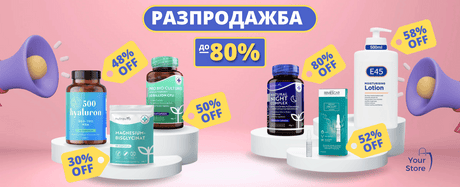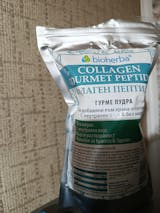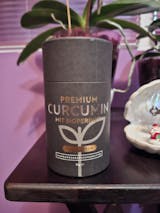Nature's Way's product contains premium cold-pressed, unrefined and unfiltered evening primrose seed oil (Oenothera biennis L. from the Onagraceae family).
Nature's Way Evening Primrose Oil is guaranteed to contain 120 mg of gamma-linolenic acid (GLA) per softgel capsule. GLA is an extremely valuable Omega-6 fatty acid for the body, which is involved in the initial stages of the synthesis of prostaglandins - hormone-like compounds produced in various parts of the human body and playing an important role in many physiological processes.
Other components of evening primrose oil are linolenic, palmitic, stearic and oleic fatty acids, the steroids campesterol and beta-sitosterol, etc.
Therapeutic uses of evening primrose oil
Conditions in which taking evening primrose oil has a positive impact are:
→ hormonal imbalance;
→ premenstrual syndrome (PMS);
→ breast pain (mastalgia);
→ dry skin, eczema;
→ dry eye syndrome;
→ rheumatoid arthritis;
→ diabetic polyneuropathy;
→ high cholesterol levels;
→ atherosclerosis;
→ ischemic heart disease.
Main effects of evening primrose oil
→ Reduces symptoms of premenstrual syndrome – mood swings, breast tenderness, frequent fatigue, increased appetite for sweet and high-calorie foods, irritability and depression.
→ Supports skin health and soothes symptoms of eczema, atopic dermatitis, and acne.
→ Supports the function of the cardiovascular system, the strength of blood vessels and lowers cholesterol levels.
→ It has anti-inflammatory properties and helps prevent arthritis.
→ It can relieve the symptoms of dry eye.
Premenstrual syndrome
Evening primrose oil is often recommended for girls and young women with PMS because the components in the oil inhibit the production of the pro-inflammatory prostaglandin PGE1, reducing the frequency and severity of menstrual cramps and reducing the feeling of heaviness and tightness in the breasts.
Eczema and atopic dermatitis
People with atopic dermatitis have been found to have inherited low levels of the conversion of linolenic acid to gamma-linolenic acid (an enzymatic process known as 6-desaturation). There is evidence that evening primrose reduces itching and the size of affected skin areas.
Regarding eczema, there are many topical evening primrose products, but oral administration also helps limit symptoms and is a good complement to standard therapies.
Cardiovascular diseases
In terms of cardiovascular disease, evening primrose has the same effects typical of oils high in unsaturated Omega-3 and Omega-6 fats, such as fish and flaxseed oil.
Linolenic and gamma-linolenic acids lower serum cholesterol levels by improving the lipid composition of membranes and improving their permeability for cholesterol to cells, instead of clogging blood vessels.
Gamma-linolenic acid has proven hypotensive and mild anticoagulant effects.
Dry eye syndrome
Studies on Omega-3 and Omega-6 fatty acids and dry eyes in contact lens wearers show that evening primrose oil is a valuable supplement, relieving inflammation and irritation.
Despite the general rule that Omega-3 fatty acids are converted into anti-inflammatory prostaglandins and Omega-6 into pro-inflammatory ones, evening primrose is an exception because the gamma-linolenic acid it contains is an Omega-6 fatty acid with a pronounced anti-inflammatory effect.
Note: Do not use as a substitute for a varied and nutritious diet. Do not exceed the recommended daily dose.
Directions for use: 1 capsule 2 to 3 times daily.


















































